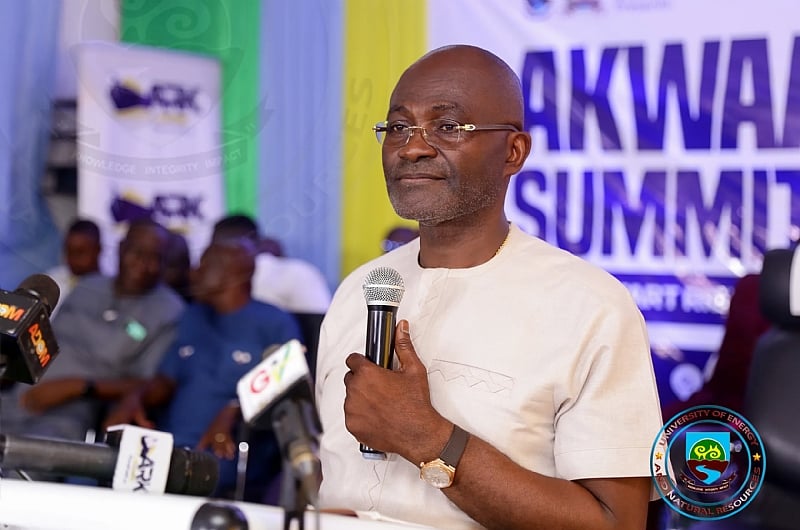Kennedy Agyapong, a prominent figure within the New Patriotic Party (NPP), has issued a compelling call for unity and reconciliation within the party’s ranks. He advocates for a gesture of amnesty towards two key figures who have become estranged from the NPP: Alan Kyerematen, a former presidential aspirant and Trade Minister, and Paul Afoko, a former National Chairman. Agyapong believes that extending an olive branch to these individuals, along with others who have been suspended, is crucial for solidifying the NPP’s foundation and preparing the party for future electoral success. He argues that such a move would not only demonstrate the NPP’s commitment to healing internal divisions but also strategically bolster its support base by reintegrating the networks and affiliations associated with these figures.
Agyapong’s call for amnesty underscores the complex dynamics within the NPP. Alan Kyerematen’s departure from the party following the 2024 flagbearer primaries, culminating in the formation of his own political movement, represents a significant fissure within the party. Similarly, the protracted suspension of Paul Afoko remains a contentious issue, highlighting unresolved tensions stemming from accusations of undermining the party’s presidential candidate. Agyapong’s plea for reconciliation recognizes the potential ramifications of these divisions and emphasizes the importance of fostering internal unity to project an image of strength and cohesion.
The context of Agyapong’s appeal is significant. He delivered this message during the NPP’s nationwide Thank You tour, a platform designed to express gratitude to party supporters following a successful election. By choosing this venue to advocate for amnesty, Agyapong sought to amplify the message of unity and reconciliation, framing it as an essential ingredient for future victories. His appeal to the national executives to initiate this process underscores the need for a top-down approach to healing internal rifts and fostering a more inclusive party environment. He emphasizes the strategic importance of consolidating support by welcoming back those who have been marginalized, highlighting the potential for their networks and influence to contribute significantly to the NPP’s electoral strength.
Agyapong’s argument rests on the premise that a united front is more likely to garner greater support. He emphasizes the importance of bringing back not only Kyerematen and Afoko but also their relatives, friends, and associated networks. By extending amnesty, the NPP would effectively be reintegrating a potentially significant voting bloc, thereby bolstering its electoral prospects. This strategic dimension of his argument highlights the pragmatic considerations behind his call for unity. He believes that a larger, more inclusive party, even one encompassing previously dissenting voices, is better positioned to compete effectively in future elections.
Agyapong’s appeal underscores the need for the NPP to prioritize internal cohesion over individual grievances. He frames the act of amnesty as an investment in the party’s future, recognizing that past divisions can hinder future success. By focusing on the broader goal of party unity, Agyapong seeks to move beyond the specific circumstances surrounding the departures of Kyerematen and Afoko. His emphasis on the strategic benefits of reintegrating these individuals and their networks underscores the practical rationale behind his plea. He implicitly argues that the potential gain in electoral support outweighs the potential risks associated with welcoming back those who have previously challenged the party’s leadership.
In conclusion, Kennedy Agyapong’s call for amnesty represents a significant intervention in the internal dynamics of the NPP. He advocates for a strategic approach to party unity, recognizing the potential electoral benefits of reintegrating estranged figures like Alan Kyerematen and Paul Afoko. His plea to the national executives to initiate this process highlights the need for a top-down approach to reconciliation. By framing amnesty as an investment in the party’s future, Agyapong seeks to prioritize the collective good over individual grievances, emphasizing the importance of a united front in achieving future electoral success. The success of this appeal, and the subsequent impact on the NPP’s internal dynamics, remains to be seen, but it undoubtedly raises crucial questions about the party’s commitment to inclusivity and its strategic vision for the future.


